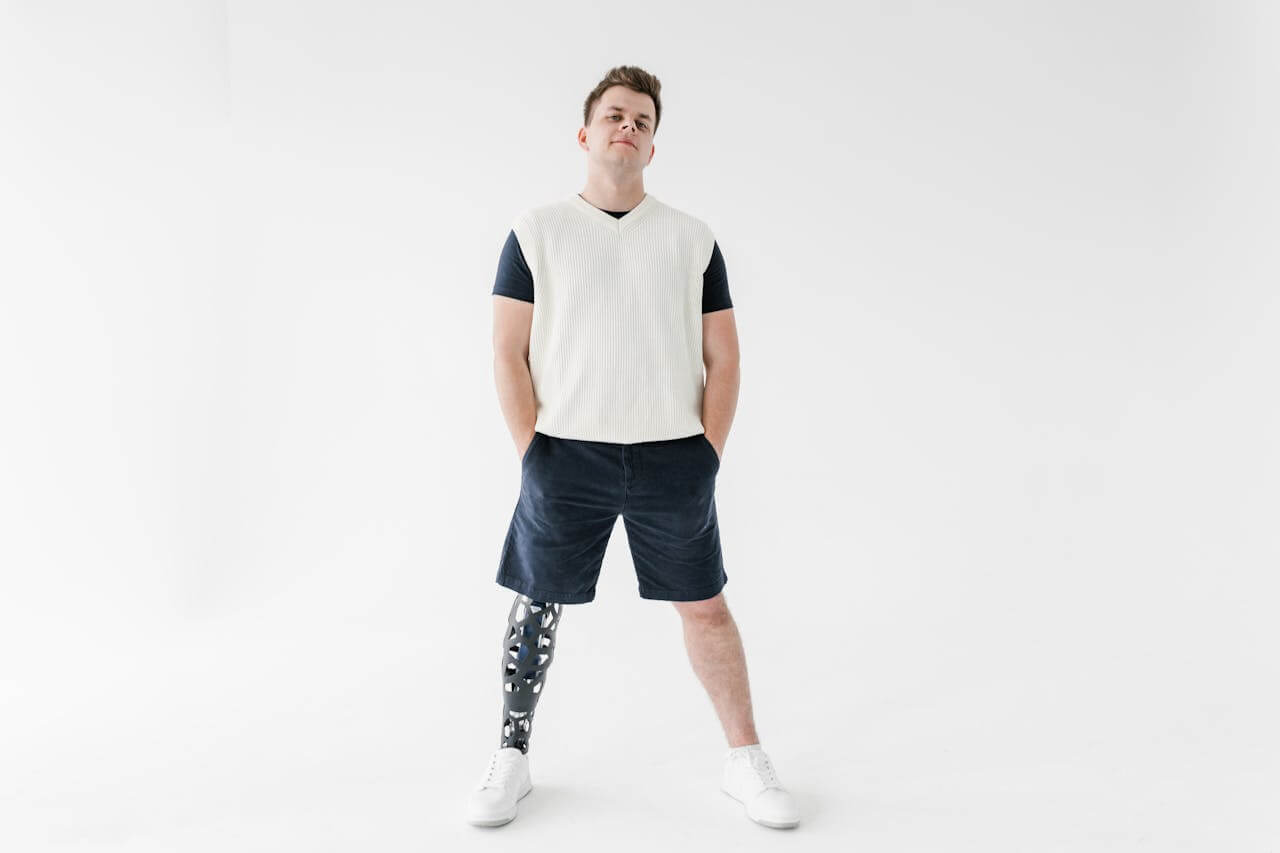Facing amputation is a life-changing experience that brings numerous physical and emotional challenges. While the journey can be daunting, many amputees find ways to not only adapt but thrive. Staying motivated is key to overcoming these challenges and embracing life with a positive outlook. Here are some strategies and insights to help amputees stay motivated and find joy in their journey.
Embrace a Positive Mindset
One of the most powerful tools in staying motivated is cultivating a positive mindset. This doesn’t mean ignoring the difficulties but rather focusing on the opportunities and achievements. Start by setting small, achievable goals. Celebrate each milestone, no matter how minor it may seem. Acknowledging progress helps build momentum and fosters a sense of accomplishment.
Connect with Supportive Communities
Finding a support system is crucial for maintaining motivation. Connect with other amputees through support groups, both in-person and online. These communities offer a safe space to share experiences, ask for advice, and provide encouragement. Hearing stories of resilience and success from fellow amputees can be incredibly inspiring and help you realize you’re not alone in your journey.
Set Realistic Goals
Setting realistic, achievable goals is essential for staying motivated. These goals can be related to physical rehabilitation, personal hobbies, or professional aspirations. Break larger goals into smaller, manageable steps. For example, if your goal is to walk a certain distance, start with shorter walks and gradually increase the distance over time. Tracking your progress and seeing improvement can boost your confidence and motivation.
Stay Physically Active
Physical activity is not only beneficial for your physical health but also for your mental well-being. Engage in exercises and activities that you enjoy and that are appropriate for your fitness level. Whether it’s swimming, yoga, or adaptive sports, staying active can improve your mood, reduce stress, and enhance your overall quality of life. Consult with your healthcare provider or a physical therapist to develop a safe and effective exercise routine.
Seek Professional Support
Professional support from therapists, counselors, or psychologists can be invaluable in navigating the emotional and psychological aspects of amputation. Therapy can provide tools and strategies for coping with anxiety, depression, and other emotional challenges. Cognitive-behavioral therapy (CBT), for example, can help reframe negative thoughts and promote a more positive outlook.
Embrace New Hobbies and Interests
Exploring new hobbies and interests can be a great way to stay motivated and engaged. Whether it’s learning a new musical instrument, painting, or gardening, finding activities that bring joy and satisfaction can provide a sense of purpose and fulfillment. Engaging in creative or recreational pursuits can also serve as a distraction from negative thoughts and promote mental well-being.
Volunteer and Give Back
Helping others can be a powerful motivator. Volunteering your time and skills can provide a sense of purpose and connection. Many amputees find meaning in supporting others who are going through similar experiences. Whether it’s mentoring a new amputee, participating in awareness campaigns, or joining charitable organizations, giving back can enhance your sense of community and fulfillment.
Stay Informed and Empowered
Educate yourself about your condition and the available resources. Staying informed about advancements in prosthetics, rehabilitation techniques, and adaptive technologies can empower you to make informed decisions about your care and lifestyle. Knowledge is power, and being proactive about your health and well-being can boost your confidence and motivation.
Practice Mindfulness and Relaxation Techniques
Mindfulness and relaxation techniques, such as meditation, deep breathing, and progressive muscle relaxation, can help manage stress and improve mental clarity. These practices can promote a sense of calm and well-being, making it easier to stay focused and motivated. Incorporating these techniques into your daily routine can enhance your overall quality of life.
Build a Routine
Establishing a daily routine can provide structure and stability, which are important for maintaining motivation. A routine helps create a sense of normalcy and predictability, which can be comforting during times of change. Include time for physical activity, hobbies, social interactions, and self-care in your routine. Sticking to a schedule can help you stay organized and focused on your goals.
Celebrate Your Achievements
Take time to celebrate your achievements, no matter how small they may seem. Acknowledging your progress and successes can reinforce positive behaviors and boost your motivation. Keep a journal or a scrapbook to document your journey and milestones. Reflecting on how far you’ve come can provide encouragement and a sense of accomplishment.
Find Inspiration in Others
Look for inspiration in the stories of other amputees who have overcome challenges and achieved great things. There are numerous books, documentaries, and online resources that showcase the resilience and determination of amputees from all walks of life. These stories can serve as powerful reminders that you too can overcome obstacles and achieve your goals.
Maintain a Healthy Lifestyle
A healthy lifestyle, including a balanced diet, adequate sleep, and regular exercise, is essential for maintaining physical and mental well-being. Good nutrition and proper rest can enhance your energy levels, mood, and overall health. Avoiding unhealthy habits such as smoking and excessive alcohol consumption is also important for your overall well-being.
Stay Connected with Loved Ones
Maintaining strong connections with family and friends can provide emotional support and motivation. Don’t hesitate to reach out to your loved ones for help and encouragement. Surrounding yourself with positive, supportive people can make a significant difference in your motivation and outlook on life.
Conclusion
Staying motivated as an amputee involves a combination of a positive mindset, supportive communities, realistic goal-setting, and self-care. Embracing new hobbies, seeking professional support, and finding inspiration in others can also play a significant role in maintaining motivation. Remember, your journey is unique, and it’s important to celebrate your achievements along the way. With the right strategies and support, you can overcome challenges and lead a fulfilling, empowered life.



